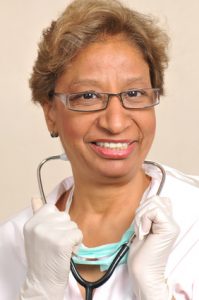
As nursing continues to be a strong profession, more and more people are turning to nursing for the first time in middle age. Some of them get into it after they’ve been fired from non-nursing jobs. Others are re-entering the workforce after a period of being stay-at-home moms, or just want to change professions for altruistic reasons.
At Heartland Community College in Normal, Indiana, all 40 members of the class that will graduate on May 18th are non-traditional students. This article on Pantagraph.com quotes a second-year nursing student, John Cook, as saying that at age 47 he expected to be the oldest in his class but that wasn’t the case. “It’s a huge cross-section of people with bachelor’s degrees in other fields, including a lot of moms,” he said.
The nursing-as-a-second-career trend has been in place for several years, said Deb Smith, vice president and chief nursing officer of OSF St. Joseph Medical Center, Bloomington.
Some people who pursue nursing as a second career take advantage of accelerated, one-year nursing programs for people who already have a bachelor’s degree, Smith said. For example, Illinois State University’s Mennonite College of Nursing in Normal has an accelerated bachelor of science in nursing program.
Laurie Round, vice president of patient care services and chief nursing executive at Advocate BroMenn Medical Center in Normal, said the recession has driven some people from their original careers into nursing. Both ISU-Mennonite and Illinois Wesleyan University’s School of Nursing in Bloomington reported an increase in enrollment last fall.
There is a demand for nurses because nurses work in hospitals, doctors’ offices, businesses, insurance companies, long-term care facilities and churches. But second-career nurses also are drawn to the field for altruistic reasons, Smith and Round said.
“They want to do something that’s meaningful,” Round said. “They want to touch peoples’ lives.”
Middle-age adults going into nursing need to learn a career quickly and need to keep their energy level up.
Some middle-age adults are challenged by all the technology involved with patient care, Round and Smith said.
But the maturity and experience of second-career nurses generally makes up for any challenges.
“I love the energy, the intensity, the maturity and the decision-making skills that they bring to the field,” Round said. “These people are choosing nursing while raising a family and working at the same time and that shows perseverance, commitment and discipline.”
Second-career nurses not only come in with the experience of previous employment and raising a family. They also have social skills and because they are close in age to nurses already in the field — the average age of nurses is 47 — they fit in with other nurses quickly, Smith said.
McLaughlin-Olson said, “They can use their life experiences to help them become better nurses. Because they’ve lived through life’s challenges, they’ve learned how to critically think when issues come up, and they have empathy and can relate to people having problems.”
But Smith and Round also are impressed with traditional nursing students, who graduate to enter nursing in their early 20s. They are intelligent, energetic and learn quickly, they said.
For that reason, both Round and Smith said middle-age, second-career nurses are not necessarily the new face of nursing.
“I see a great mix across generations,” Round said.
Adds Smith: “It’s good to have people entering nursing with a variety of life experiences. That further enriches our profession.”
